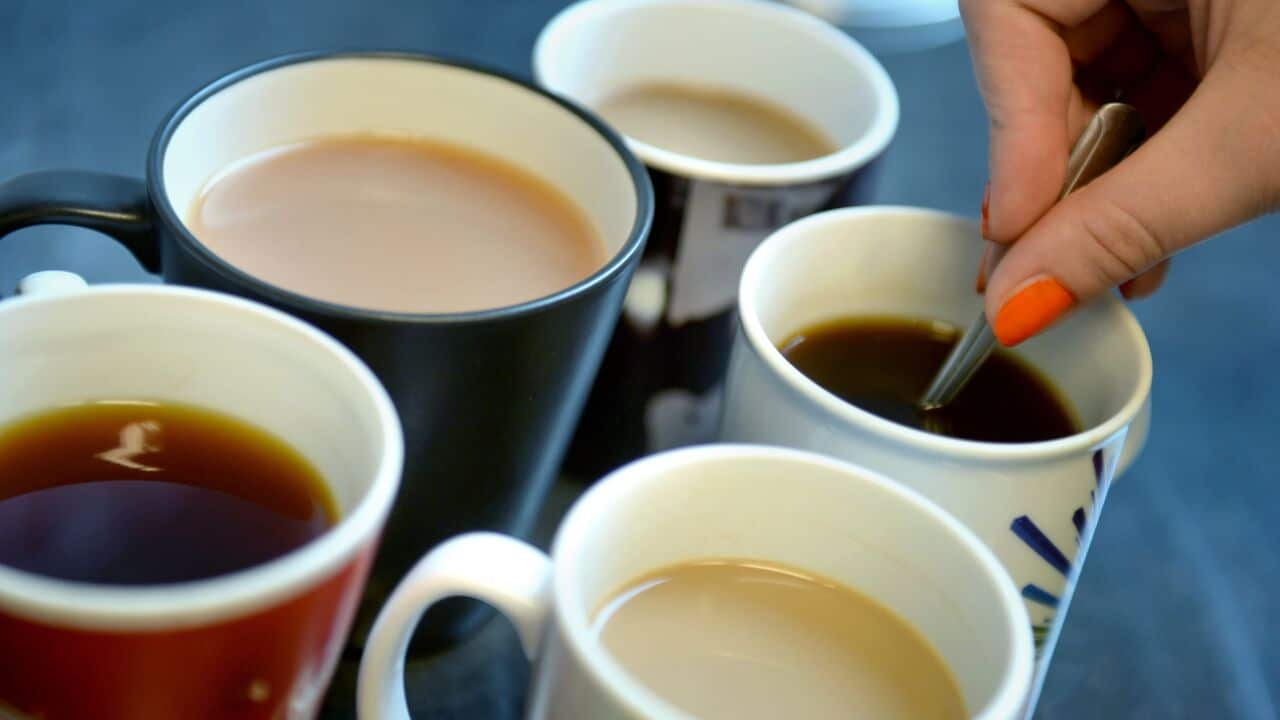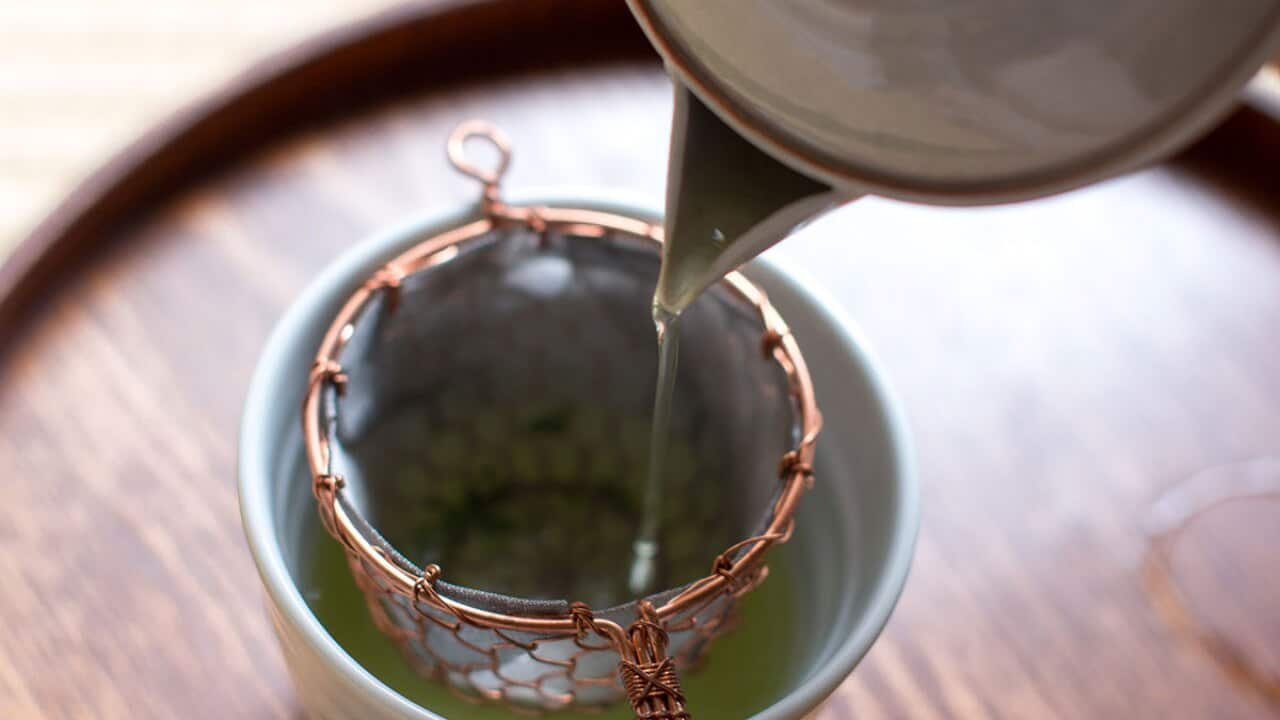Research shows that our love of tea in Australia has increased significantly over the past five years, with one theory suggesting that we turn to a cuppa as a form of stress relief.
shows that 50 per cent of Australians drink at least one cup of tea per week, with those in the over 65 age range drinking around 11 cups per week. That's a clear rise: Similar stats from the ABS show that in the 2011-12 period, tea was only consumed by 38 per cent of Australians.
So what is it about a nice warm cuppa that we find so comforting?
Sunny Huang, who now runs specialty teahouse in Sydney, grew up in China’s Yunnan province, one of the first regions where tea trees were discovered thousands of years ago.
“When I was growing up in that region I was drinking tea every single day. It’s very steeped into the culture, and the everyday lifestyle as well,” Huang tells SBS. Before opening his teahouse, Huang spent five months studying with tea masters in China’s tea mountains.
Before opening his teahouse, Huang spent five months studying with tea masters in China’s tea mountains.

"Tea makes you quite meditative," says Sunny Huang. Source: SBS Food
“We went through the harvest process, then fermentation, all the stages of tea. They taught me about the teachings of tea, the culture of tea, and the art behind making it.”
“Tea definitely promotes a calming sensation, and it makes you quite meditative,” says Huang.
Sarah de Witt creates and sells artisan teas through her brand , and is a co-founder of , which celebrates the high tea experience.
De Witt has a background in psychology, and was first introduced to the benefits of tea when learning about therapy.
“We would always offer people tea, and you could see it was such a comfort or relaxant for people,” she told tells SBS. “That got me interested in tea, and it became part of my personal ritual.”
Ritual and tradition
Tea itself is thousands of years old, and almost every culture in the world drinks some form of it. “Everyone's got a bit of tea somewhere in the house. There's always some teabags, some English Breakfast, somewhere hidden in the cupboard,” Huang says.
Both Huang and de Witt believe that no matter how you take your tea, the process of making it is a huge part of its appeal.
“Tea is a ritual, and anyone can make it. It's about boiling the kettle, listening to the water boil, the steam coming off the tea when you pour it into the cup. Smelling it, looking at it, and feeling it,” says Huang.
“That whole process is a meditation in itself, I think,” says de Witt.
And, what about coffee? Well, tea to it yet in terms of Australia’s most loved beverages, but it is gaining ground.
In 2014-2015, 42 per cent of Australians purchased tea in an average four-week period, and 45 per cent chose coffee.

Making tea can be "a meditation in itself", says Sarah De Witt. Source: Supplied
Mindfulness and health benefits
De Witt is focused on mindfulness when it comes to brewing and creating teas, and she believes that many Australians turn to tea as a way to de-stress.
“Tea is associated with the mindfulness movement, and the serenity that a lot of stressed people need in their lives,” she says. “It doesn't surprise me that tea is on the rise, because so is stress, and they go hand in hand!”
Huang believes that tea is connected to emotions, and promotes a calming sensation for many drinkers. “Plus, it has such a high content of antioxidants. A lot of teas have elements that reduce blood pressure and reduce high cholesterol - you can't overdose on it!” he says.
There are many studies out there outlining the benefits of certain types of tea, with green tea in particular thought to be able to help with blood purification and even Other research has confirmed that tea or help us .
a brew with benefits

5 reasons to pour yourself a cup of tea
A tea for every moment
that the sale of regular tea like Earl Grey and English Breakfast has declined over the past five years, with the sales of herbal and specialty teas increasing slightly.
“I think T2 really started it with the specialty teas,” says Huang. “People are starting to discover that there's more than just tea bags.”
“When it comes to specialised tea, it’s like an alternative to coffee. Australia is heavily dominated by coffee culture, so for tea-lovers it's like a cool little community that they can be a part of,” he says.
De Witt has noticed that more people are choosing to explore their options when it comes to a pot of tea.
“People are starting to realise that there is a tea to suit every mood and moment. Tea can be calming, it can be invigorating, it can be delicious, it can work well with food, it's nice iced or hot,” she explains.
According to Huang, Australia’s growing love of tea all comes down to one factor. “Tea drinkers are just better people,” he laughs.











